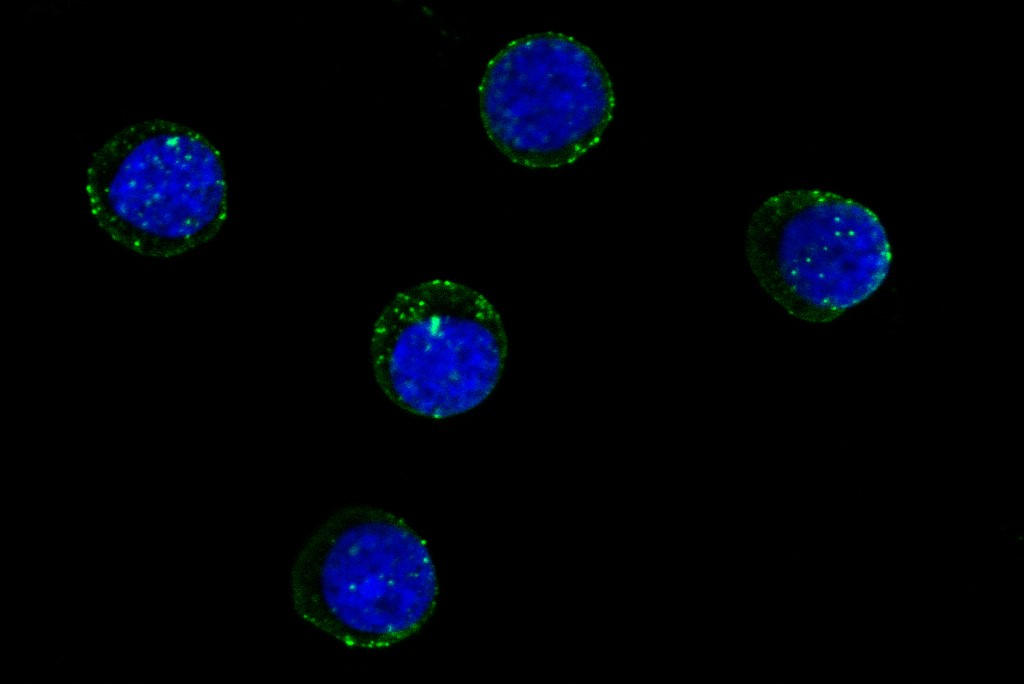News
Blood stem cells are skewed towards erythroid differentiation in patients with β-thalassemia
The team of researchers guided by Giuliana Ferrari, Group Leader of the Gene Transfer into Stem Cell lab at the San Raffaele-Telethon Institute for Gene Therapy and Full Professor in Molecular Biology at Vita-Salute San Raffaele University, discovered that altered TGF-β signaling leads to reduced dormancy and activation of blood stem and progenitor cells, which become skewed towards erythroid differentiation, which remains ineffective because of the genetic defect, in patients with β-thalassemia. The results of the study have been published in Nature Communications.


Blood stem cells. In green: a marker of autophagy; in blue: cell nuclei
The Study
β-thalassemia is a chronic genetic anemia caused by a mutation in the β-globin gene, which results in the defective synthesis of adult hemoglobin, chronic expansion of erythrocyte precursor cells and altered production and maturation of erythrocytes- that is, blood red cells.
To understand how the disease affects bone marrow environment and blood cell production (hematopoiesis), the authors of the present study used bulk and single-cell RNA sequencing of blood stem and progenitor cells derived from patients with severe β-thalassemia.
They found that blood stem and progenitor cells in these patients proliferated more and were primed to generate erythroid cells as compared to healthy donors. Stem cell differentiation down the erythroid trajectory started earlier and proceeded faster in β-thalassemic patients than in healthy controls.
Erythroid priming of hematopoiesis was driven by altered TGF-β signaling, characterized by low levels of TGF-β1. Low levels of this growth factor are presumably derived from osteoblasts and stromal cells, which the same authors had previously shown to be defective in β-thalassemia.
Deregulated TGF-β signaling, in turn, led to reduced expression of autophagy-related genes in blood stem and progenitor cells, which could account for their decreased dormancy and priming to differentiate down the erythroid lineage. In this context, in vivo activation of autophagy restored a balanced hematopoiesis in a mouse model of the disease.
“With this work we show that blood stem and progenitor cells in β-thalassemia proliferate more and differentiate earlier and faster down the erythroid lineage,since the bone marrow is continuously stimulated in response to stress signals of the disease condition.”, says Professor Giuliana Ferrari, who concludes: “ Disentangling fate decisions, composition and molecular characteristics of the hematopoietic stem cell niche in β-thalassemia is crucial for a deeper understanding of the disease and subsequent optimization of therapeutic interventions”.
Published on: 03/07/2025
